- News
- Reviews
- Bikes
- Components
- Bar tape & grips
- Bottom brackets
- Brake & gear cables
- Brake & STI levers
- Brake pads & spares
- Brakes
- Cassettes & freewheels
- Chains
- Chainsets & chainrings
- Derailleurs - front
- Derailleurs - rear
- Forks
- Gear levers & shifters
- Groupsets
- Handlebars & extensions
- Headsets
- Hubs
- Inner tubes
- Pedals
- Quick releases & skewers
- Saddles
- Seatposts
- Stems
- Wheels
- Tyres
- Tubeless valves
- Accessories
- Accessories - misc
- Computer mounts
- Bags
- Bar ends
- Bike bags & cases
- Bottle cages
- Bottles
- Cameras
- Car racks
- Child seats
- Computers
- Glasses
- GPS units
- Helmets
- Lights - front
- Lights - rear
- Lights - sets
- Locks
- Mirrors
- Mudguards
- Racks
- Pumps & CO2 inflators
- Puncture kits
- Reflectives
- Smart watches
- Stands and racks
- Trailers
- Clothing
- Health, fitness and nutrition
- Tools and workshop
- Miscellaneous
- Buyers Guides
- Features
- Forum
- Recommends
- Podcast
feature
 2023 TdF directors car peloton A.S.O._Charly_Lopez
2023 TdF directors car peloton A.S.O._Charly_LopezGet to grips with the new UCI rules — changes to look out for in this year’s Tour de France
The UCI's rule book is constantly changing, and we can't say it's the most entertaining read... so, we've flicked through the 316 pages to find some of the new rules that will be applied to this year's Tour de France and Tour de France Femmes. At least there aren't any changes to sock heights this year!
The Tour de France is, in essence, rather simple. All riders start at point A, follow a predetermined route to point B, and the rider with the lowest accumulative time over the three weeks wins the yellow jersey. However, look a little deeper, or take a look at the UCI's list of penalties for each stage, and you'll see that riders and teams rack up sizeable fines, issued in Swiss francs (because, as you may already know, the UCI's headquarters are in Switzerland).
What are all these fines for? Why can't riders and teams just follow the rules, and which ones are new for 2023? Let's delve a bit deeper into that great big rule book...
Tour de France and Tour de France Femmes "equipment registration"
> New Ridley road bike breaks cover at Critérium du Dauphiné
Cutting edge bikes and equipment often make their debuts at the Tour de France, but the UCI has tightened the rules on the use of prototypes in competition. Interestingly, this rule won't be enforced for other road events listed on the 2023 UCI calendar and is only applicable at the Tour de France and Tour de France Femmes in 2023.
Framesets, wheels, handlebars, time trial bar extensions, clothing and helmets (standard and TT) must all be registered prior to the start of each race - 2nd June for the Tour de France and 17th June for Tour de France Femmes, and must be made available to purchase no later than 12 months after their first use in competition.
This new rule is aimed at promoting fair and equitable access to equipment in cycling events, and ensuring a level playing field for all competitors. Article 1.3.006 states, "equipment shall be of a type that is sold for use by anyone practising cycling as a sport".
Any unauthorised use of equipment may be sanctioned by disqualification of results obtained when using the equipment and/or a fine ranging from 5,000 to 100,000 Swiss francs. We don't know what the consequences will be if prototypes aren't made available in 12 months yet .
Will this affect the tech we see at this year's Tour?
No oversized helmets
> Have you ever seen a crazier time trial helmet than this?
In a bid to gain an aerodynamic advantage, helmets have got bigger and bigger; but new rules set out by the UCI are putting an end to this.
For both road and track, the 2023 regulations state that the dimensions of a helmet, including accessories, must not be longer than 450mm, no wider than 300mm and no higher than 210mm.
> Has aero gone too far? The most excessive cycling tech made to shave milliseconds
However, this rule doesn't apply for helmets that were already manufactured, on the market, or at the production stage on 1st January 2023. So we may still see some Star Wars-esque helmets at this year's Tour like Sweet Protection's corker (above) that the Uno-X Pro Cycling Team have been rocking this year.
Narrow(er) handlebars banned
> Check out the best road bike handlebars 2023
Over the past few years, the number of pro riders using narrow bars with even narrower shifter hoods has increased dramatically.
The advantage of going to a narrower bar is of course aerodynamics. Not from the bar itself, but from the narrower frontal area it gives the rider, and the ability to squeeze through tighter gaps. However, with this comes safety concerns, and the UCI has revised its maximum handlebar width.
While Article 1.3.012 of the UCI’s technical regulations only previously stipulated that the maximum width of a bike - and therefore its handlebars - must not exceed 500mm, the new rule also states that “the minimum overall width (outside — outside) of traditional handlebars (road events) and base bars (road and track events) is limited to 350mm.”
We can still expect to see riders squeezing through gaps that we wouldn't dare to, just while using some slightly wider handlebars this year...
Adjusted rider reach
> What makes a Tour de France time trial bike so fast?
Another change in the UCI's regulations is its rules on time trial positions, meaning taller riders can now take advantage of greater reach and more height difference between the forearm support and the extension tips.
There are three different categories based on height, so all riders now get 80cm reach from bottom bracket to handlebar, with the 180-190cm bracket getting 83cm and riders over 190cm permitted to extend up to 85cm.
Filippo Ganna is 193cm so already benefited from being in the tallest bracket according to the UCI's previous regulations; but his reach has now been extended 5cm (from 80 to 85cm) and he can now have a maximum height of 14cm from the centre of the forearm support to aero extensions tips.
This most affects riders who missed the cut-off by a couple of centimetres previously, and had to make their position fit the dimensions of much smaller riders. It is unlikely like that riders will drastically change their time trial positions, but it may bring more people in to contention on those time trial stages.
Team car trickery
At the Tour de France and Critérium du Dauphiné last year, the placement of team cars behind riders in time trials caused much controversy, particularly when there was a raft of bikes stacked on top of the cars.
Although we usually associate aerodynamics with the airflow over the cyclist from the front, effectively, teams can get a push effect by stacking the car in that way and following their rider at close proximity.
> Check out our 2023 cycling tech predictions
The UCI has moved to counteract this aero benefit by stipulating that drivers are now required to remain 15 metres behind their riders during races against the clock.
What does this mean? Essentially, we won't be seeing riders like Ganna or Vingegaard followed by their team cars inches behind with an unnecessary number of bikes stacked on said car's roof this year...
Pin-less number pockets are only allowed in time trials
> UCI “kindly requests” that riders stop using race number sleeves
Last year, the UCI sent a letter to teams racing the Tour de France and Tour de France Femmes asking riders to stick to the good old-fashioned method of pinning their number on; however, this wasn't an official directive and riders could still take advantage of the number sleeve for time trials.
Putting that request into law, article 1.3.029 requires that “no item of clothing may hide the lettering on the jersey or the rider’s identification number, particularly in competition and at official ceremonies”, though they will still be allowed in individual and team time trials, where riders are easier to identify.
Now for the classics you might not have heard of...
1. 'Illegal' socks
Introduced in 2018, the UCI mandates that "“socks and overshoes used in competition may not rise above the height defined by half the distance between the middle of the lateral malleolus and the middle of the fibula head.”
If the UCI cycling socks police come for you, it may result in a fine.
2. 'Puppy paws' and the super-tuck
> Richard Carapaz disqualified from Liege-Bastogne-Liege for riding in 'supertuck' position
The 'puppy paws' position is where the rider rests their forearms on the tops of the bar to reduce their frontal area, and the super-tuck refers to riders sitting on their top-tube whilst descending to maximise aerodynamics.
Up until 2021 many riders adopted these positions at the Tour de France, but for safety reasons - and to prevent younger riders copying the pros - the UCI promptly banned them both.
3. Public urination
Despite popular belief, riders aren't actually supposed to stop for a wee during a race. This is why you often see riders stopping together to try and hide one another while they relieve themselves.
The UCI states that riders/teams can be fined 200 to 500 Swiss Francs for "unseemly or inappropriate behaviour (in particular undressing or urinating in public at the start or finish or during the race)", but this is a pretty subjective one.
4. Bunny hopping on and off pavements
> Horrendous Tour of Flanders crash sees Bahrain Victorious pro disqualified
You might wish that you could jump on and off pavements and cycle paths as efficiently as the pros sometimes do, but it's technically illegal according to the UCI and if riders are identified, they'll be fined.
5. Indecent behaviour
Riders seen to be displaying indecent behaviour towards others riders or spectators can receive a hefty fine of between 200 and 2,000 Swiss Francs, and a deduction of between 10 and 100 points from the UCI rankings.
6. Other races
If a rider abandons the Tour, they aren't allowed to compete in any other cycling events for the duration of the event. Let's hope no one needs to abandon after day one...
It will result in a 15 day suspension and fine of between 200 and 1,000 Swiss Francs.
Changes specific to the Tour de France Femmes
There have been some specific changes to the rules for women's cycling in the updated UCI regulations for 2023, and the new racing rules will apply to the Tour de France Femmes which covers eight stages over the same number of days.
More team cars
Like the men's WorldTour, a second team car is now allowed for the women's WorldTour at events that are six stages or longer.
Previously, women's teams have only been granted one team car to support their riders at a race, but as per Article 2.3.017, "a second car per team is allowed (except in circuit races and on final circuits)".
This rule change will allow for better communication between riders and team directors, increase the availability of mechanical support and ensure riders have an adequate supply of nutrition and hydration throughout the race.
Bigger teams
> Hottest bikes of the Tour de France Femmes avec Zwift
For 2023, women's teams can be expanded to seven riders at WorldTour races that are six stages or more.
This rule will apply at the Tour de France Femmes with teams able to have one more rider than in the 2022 edition, but some women's teams may struggle to meet this requirement.
With the 22 teams competing, the race will see a bigger peloton with more riders, giving teams more tactical options and the chance to exert greater control over the race dynamics.
If your train is seriously delayed or you're just really into reading lengthy and complicated documents, you can check out the full 316-page UCI rule book here.
Do you think the UCI regulates races like the Tour de France too much? Let us know in the comments section below...
Emily is our track and road racing specialist, having represented Great Britain at the World and European Track Championships. With a National Title up her sleeve, Emily has just completed her Master’s in Sports Psychology at Loughborough University where she raced for Elite Development Team, Loughborough Lightning.
Emily is our go-to for all things training and when not riding or racing bikes, you can find her online shopping or booking flights…the rest of the office is now considering painting their nails to see if that’s the secret to going fast…
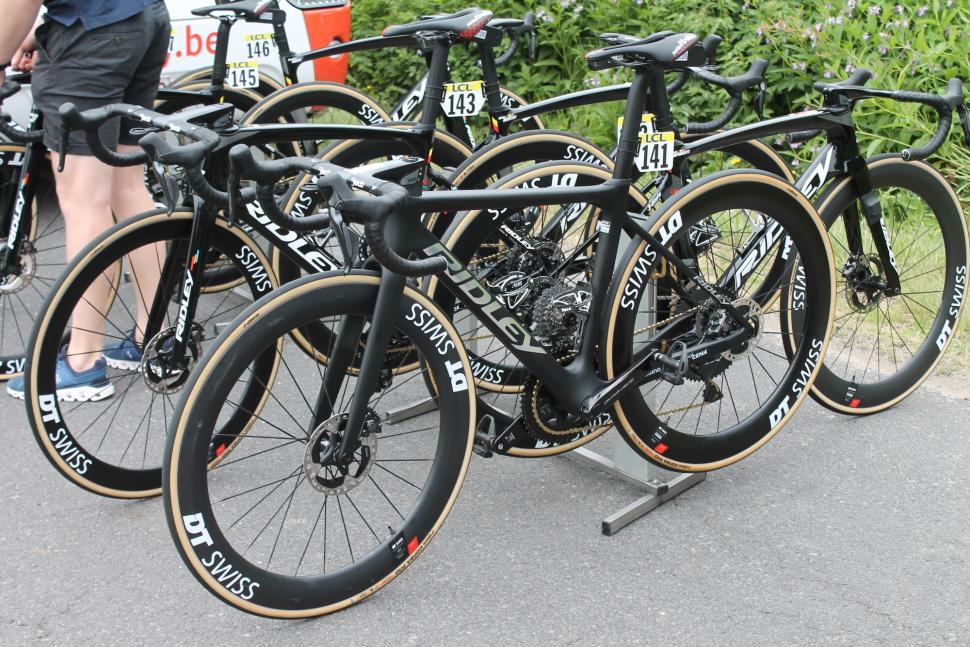
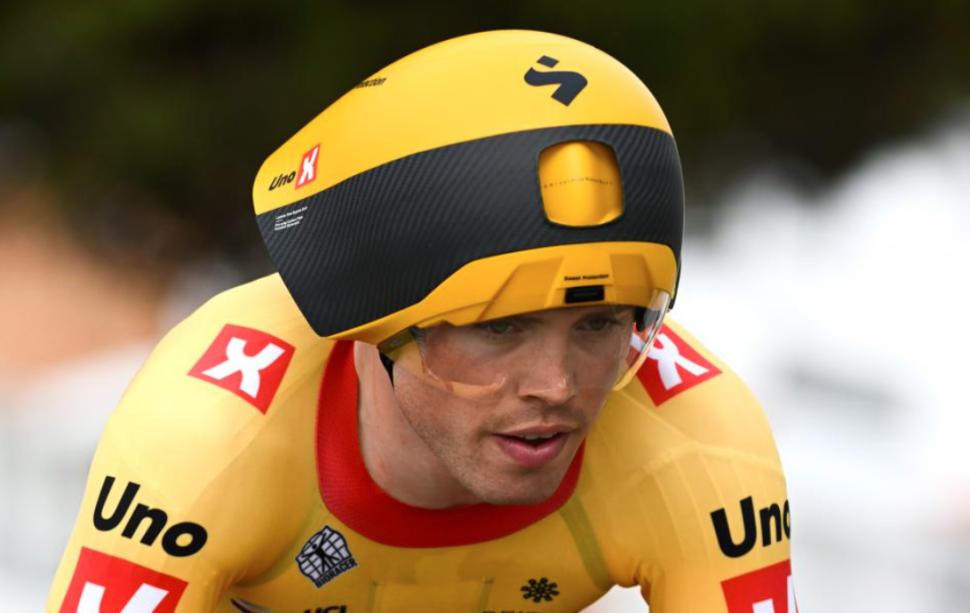
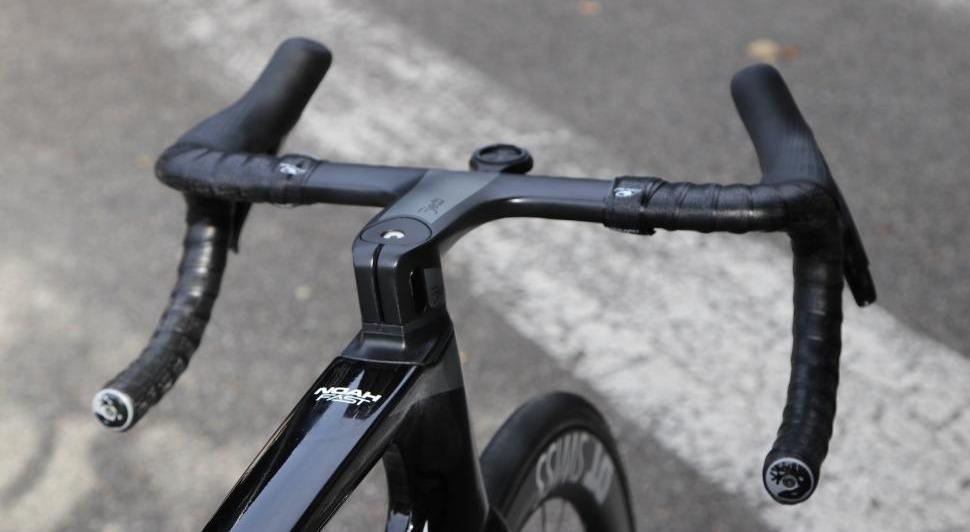
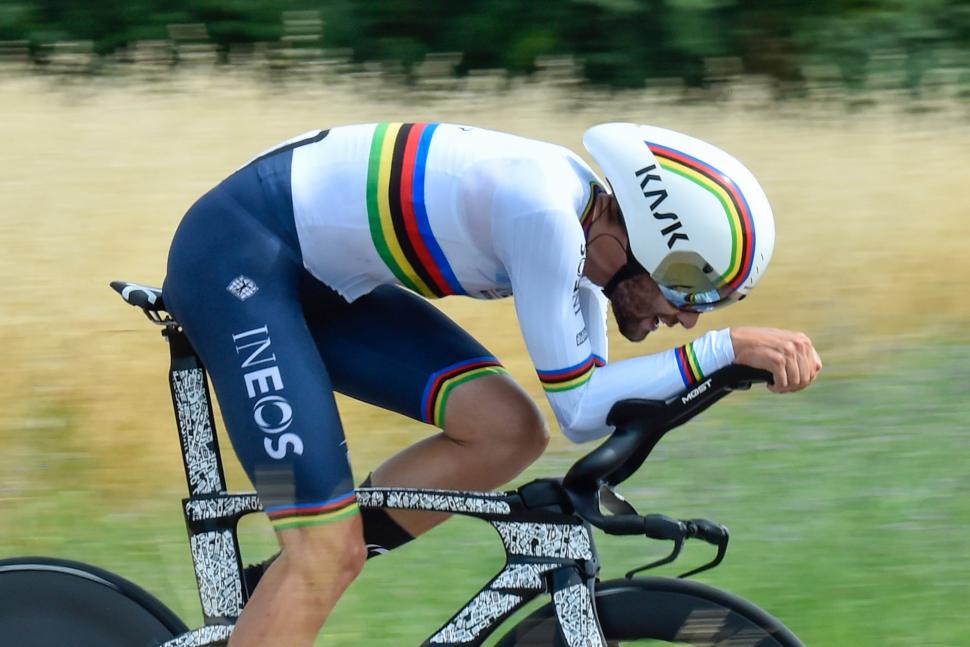

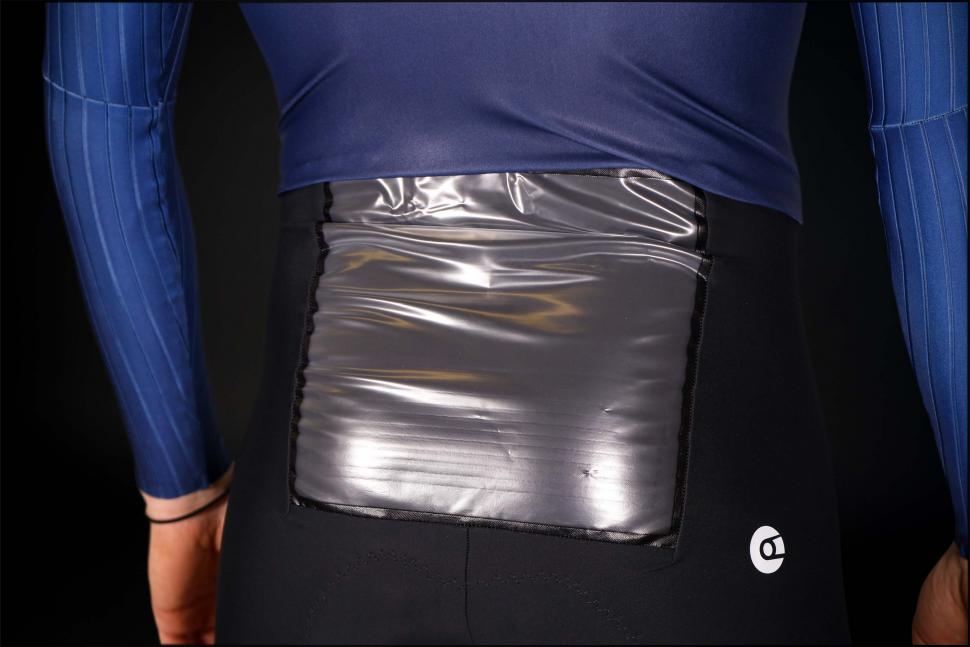
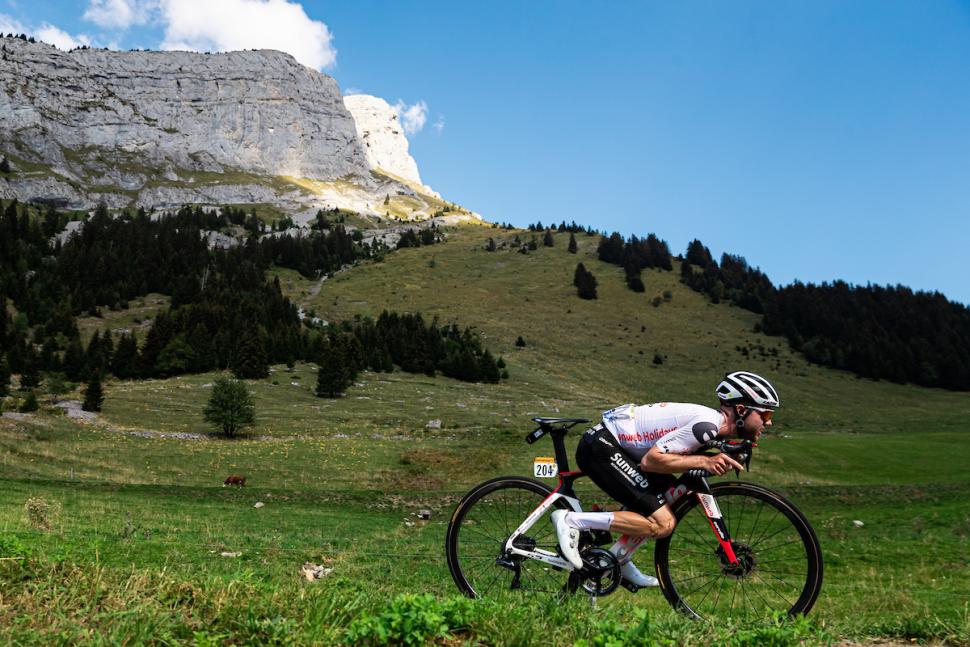
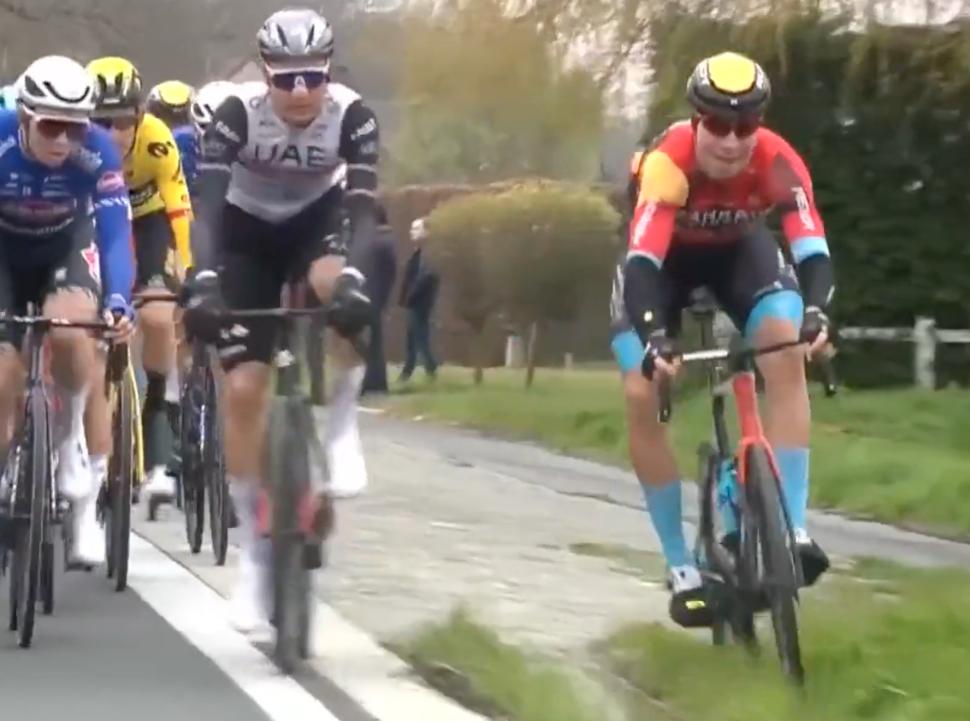
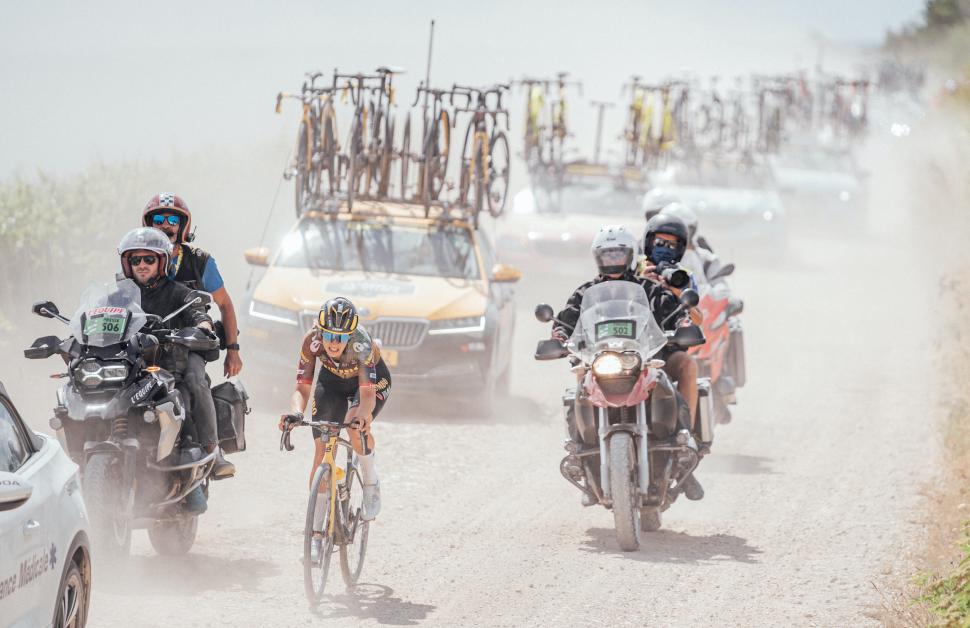
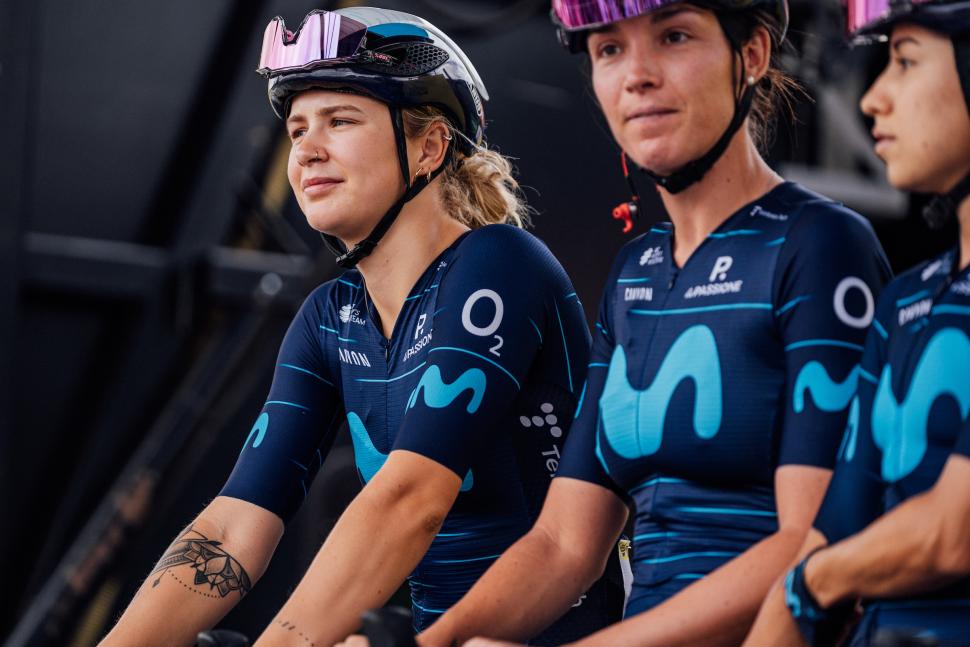
Bus driver here....
Erm... You forgot to mention The Tyne Tunnel opened in 1951!!!...
Always? So the guy is asked to appear on a podcast to discuss performance enhancing drugs and answers questions posed to him, which go beyond what...
"Babergh District Council said it had been "clear throughout" that it "had no option but to introduce charges" and could not afford to continue to...
Maybe it is the latest ruse for insurers to avoid payouts saying "You didn't tell us that you took the key out of the lock so we're refusing your...
I'm still running an ELMNT BOLT V1, and I've never really understood the LED's. I'm sure I configured them for HR zones, but never really look at...
Why is this not the will of god?
PKD foresaw it, though his novel was based on a different outcome of WWII, not the precursor to WWIII. Maybe the Idiocracy film is a closer fit?
@Sredlums: I'm not sure I follow your logic. If someone grabs your helmet twists it, then the reason it doesn't feel good is because the outer is...
Coming to the mid-paced Saturday club ride soon.